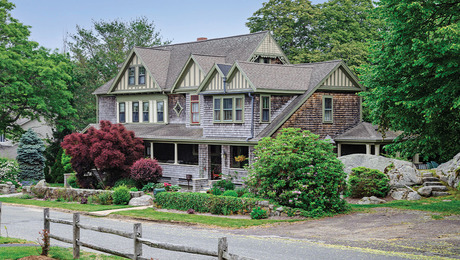Polyurethane over new engr. wood floor?
We just installed new pre-finished Bruce 15yr. engineered wood in a finished basement. Given that the veneer is thin, we’re considering putting down additional layers of poly in the hopes of extending the life of the wood. Has anybody ever tried this? Would you go with oil or waterbased poly?
We were hoping that the aditional layer would also provide a seamless topcoat, preventing things from getting trapped in the microbevels. Would having extra deep areas of poly in the microbevel pose problems?
Thanks for your help.
mike















Replies
Thats a can o' worms best left closed,IMO. The factory warranty would likely be out the window. Adhesion would be all but impossible, and yes, the micro bevels will glue them selves shut.
Spheramid Enterprises Architectural Woodworks
"If you want something you've never had, do something you've never done"
Sphere,
Would adhesion be a problem if we buffed the floor first with a screen? I don't mind if the microbevels go away, in some ways that is one of the objectives.
Mike
Poly's work with both a mechanical bond ( like your screening idea) and a chemical bond ( like not too long between coats).
Not knowing too much about the factory applied finish other than it is fully cured and conatains alum oxide or some such really hard ingredients, I doubt you'd ever achieve a bond with just mechanical adhesion.
filling the microbevels with goop will also screw up the drying rate, the goop will skin over, and eventually cure, but either shrink and show ugly, or because you didn't screen those small facets, just peel up and away.
If you wanted a flat floor without the bevels you should have installed something else, or a floor that could be refinished.
Ya got what ya got, I'd say.Spheramid Enterprises Architectural Woodworks
"If you want something you've never had, do something you've never done"
I'm with Sphere on this. Not a good idea to fix what ain't broke.
The factory applied finish is harder than anything you can buy off the shelf, so if you top coat it, it will scratch easier than the existing.
Add what he has pointed out - that to get your mechanical adhesion between coats, you would have to sand hard, eliminating the factory warrantee. That warrantee might possibly be further challenged by the fact that you would now be gluing the pieces together where top coat seeps into the joints.
If you wanted a finished on site flooring free of microbevels, that is what you should have installed, IMO.
Now, the only decent thing to do to protect this existing is to place wear runners or to wax it the old way. Oh, and have the kids keep the Tonka trucks off it.
Welcome to the
Taunton University of Knowledge FHB Campus at Breaktime.
where ...
Excellence is its own reward!
Thanks everyone for your thoughts. We will leave well enough alone, and leave the floor as is.
Mike
I have done it several times at nightclubs and restaraunts. I used the tykote system approved by the flooring manufacturer (bruce). It softens the aluminum oxide finish to accept the new finish. I have tried screening and it leaves scratches because the factory is so hard. We used a water based poly as part of the tykote system because we only ever have 1 night to finish. Good luck and dont be afraid to try we do it often.
jk
Hey Thanks, that is good news.I checked their website and MSDS too, to be sure it is safe for residential. Absolutely nothing hazardous.
Welcome to the Taunton University of Knowledge FHB Campus at Breaktime. where ... Excellence is its own reward!
MassJK1
Thanks for the info, we will look into it.
Mike